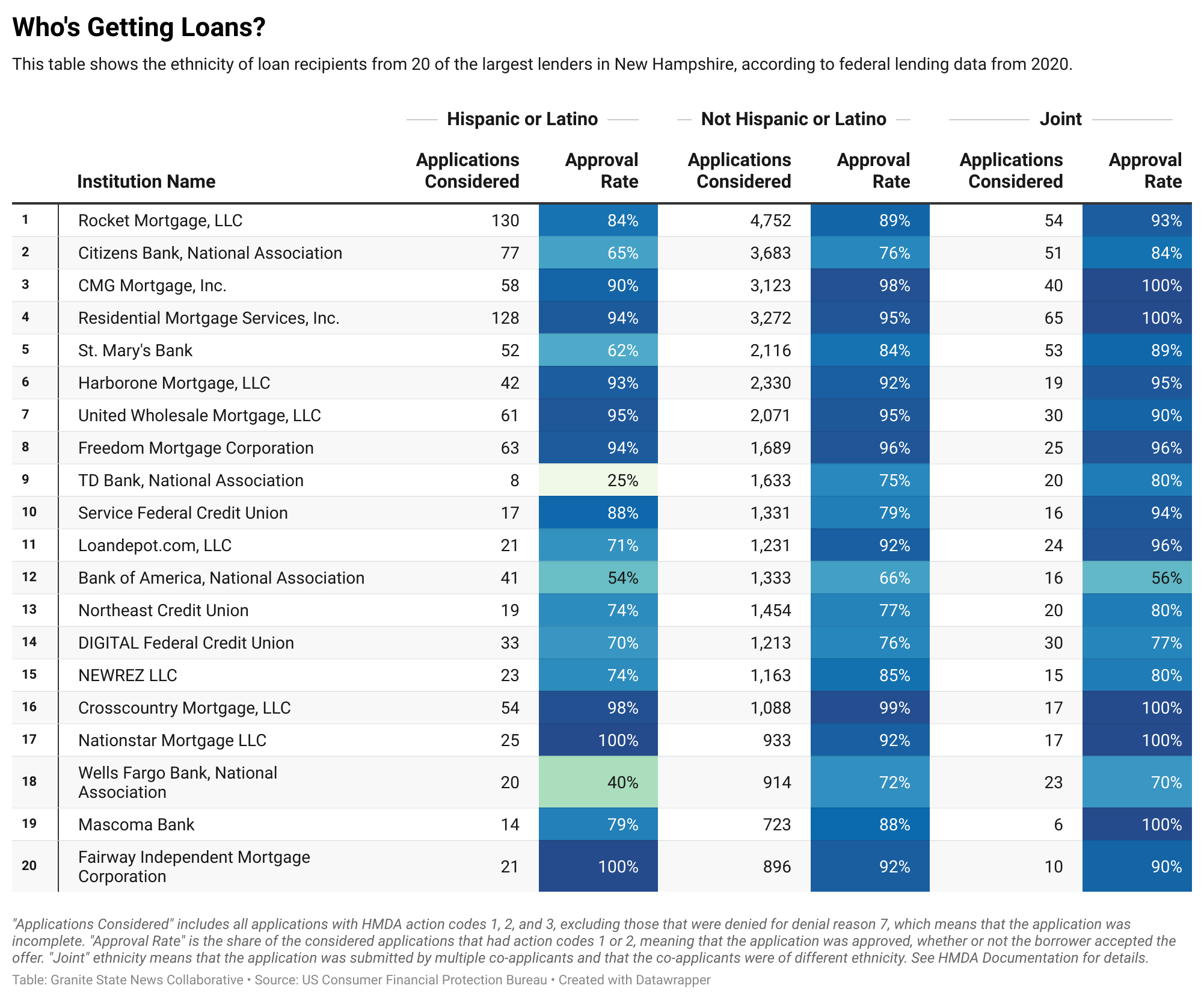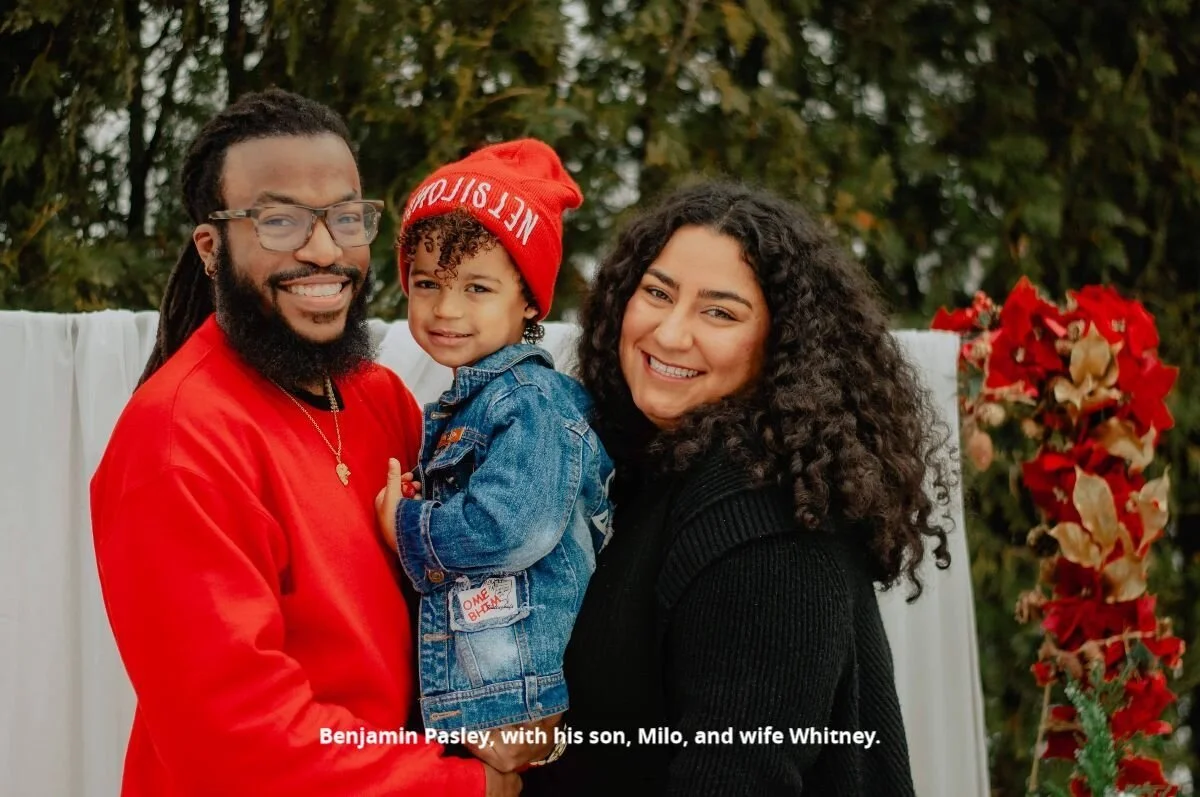This month marks one year since the Collaborative embarked on its race and equity reporting project. In the last year, we have published numerous in-depth stories and series on issues relating to education, policing, environmental justice and civic engagement, and how certain policies or practices within these areas impact people of color and create or reinforce inequities. Much of our reporting has also looked at the solutions that communities are trying to address such inequities, and whether these solutions are working.
Discriminatory lending, a new system to deal with mental health crises and a look at NH's town meeting tradition
Elected leaders and city officials have reached out to our reporters and editors about the issue as some re-zoning efforts begin. And we've received a lot of reader feedback on the series, which is ongoing.
Our latest story in the series examines how discriminatory lending practices persist in New Hampshire, creating obstacles to home ownership for non-white residents.
How NH zoning laws reinforce inequities
We can get there with your help. Please support local news.
Your donation to The Collaborative allows us to produce in-depth accountability-driven, investigative reporting that we then distribute through our more than 20 local media partners. Our partners also work with our reporters to produce investigative projects that they don't have the resources to do on their own. That work is also distributed across the partner network.
There's Still Time to Support Local News
We believe in the power of journalism to spark change, strengthen our communities, speak truth to power and uphold our democracy. And whether you're new to GSNC or have been with us from the very beginning, you know that our investigative, in-depth and solutions focused reporting fills a critical need in our communities.
A look at our latest series, and an update on our end-of-year campaign
In the last few weeks, we published a major story about lead contamination in the state, as part of our environmental justice series.
More than half of NH homes were constructed before lead paint was banned in 1978. According to the state's Department of Health and Human Services, about one-fifth of those homes currently house a child under six, meaning tens of thousands of kids may be living in structures with lead hazards.
News we trust is not a luxury. We need it.
We are a fiscally sponsored, non-profit news organization, which means in order to operate, we rely on funding support from the public to keep us going.
We use those funds to help more than 20 local news outlets share their reporting with each other. We also pay our team of experienced investigative reporters to work with Collaborative and local news editors to produce in-depth, investigative and accountability stories that the outlets can’t do with their own limited resources.
A new newsletter: Meet the Media
It's #GivingTuesday. Can we count on you?
The Granite State News Collaborative is a collective of more than 20 local news organizations stretching across the state of New Hampshire who have agreed to work together to bring their communities more news and information they can trust.
The Collaborative as an organization helps its member outlets share news of statewide impact with each other that can then be distributed across the state and out to you.
Thank you for your support! Here's what's next.
A look at police misconduct complaints, plus more from our partners
I have highlighted many of the stories and series that our team and our partners have worked on in the last few months, but there is a lot more available than I've been able to share in this newsletter. I invite you to visit our project page, where you can find everything from a series on environmental justice or college diversity to our civic engagement project and a bilingual initiative highlighting Latino restaurant owners in our state.
We've launched a new series focused on education and equity
Last weekend, we launched our Education and Equity series, which will shine a light on some of the biggest issues facing education in our state. Over the next few months, the Collaborative and our partners will examine, in depth, what is working and what could be improved in New Hampshire schools and classrooms. Among the topics we'll investigate are school leveling practices that can lead to inequity, the impact of the new education savings accounts, and how English as a Second Language programs are approached in different districts. And we're doing this reporting in partnership with you.
Our latest series: Environmental Justice
This month we released our Environmental Justice Series. The project explores the intersection of ethical, political and social issues with climate change. The first story in the series, Burdens of Heat, looks at heat-related illnesses and their effects on vulnerable communities. Upcoming topics include lead poisoning, air and water pollution, traffic, and access to healthy food.
Delve into the diversity data at NH college campuses
This month, we released our College Diversity Series, which has been in the making since the beginning of the year. The Collaborative worked with our partners at the New Hampshire Press Association to develop teams of student journalists to explore issues of diversity on the state’s college campuses. Their reporting found that NH colleges have struggled to meet their own diversity goals, and they often face a tough sell in their bid for minority students.
A grassroots tutoring program has formed in Manchester to serve students of color
The partners of the Collaborative have been closely covering the proposed policies in what began as House Bill 544 (the so-called "divisive concepts" bill). We'd like to hear from you about this initiative so we can directly respond to your questions and concerns with our coverage. Take this survey to tell us what you're curious about and how these policies could impact you.
Help Granite State News Collaborative Support Local Journalism Today!
The Granite State News Collaborative is a collective of more than 20 local media, education and community partners working together to produce and share news stories on the issues that most impact our state. The hope is that together we can provide more information to more communities across New Hampshire than we could individually.
A look at restorative justice, and a Q&A with Bookery Manchester's GM
Good morning, and welcome to the second installment of This is New Hampshire, the Collaborative's newest newsletter. Last month, we announced the launch of our multiyear reporting project focused on race and equity in the state. This month, I want to highlight some of the great work our reporters and partners have done around this project in the last few weeks.
Our newest project: Looking at race and equity in N.H.
We'll be pooling our resources from the Collaborative's nearly 20 statewide media and community partners to examine a multitude of issues facing people of color in New Hampshire, from economic opportunity to health equity to criminal justice. Looking at possible solutions and examining whether they could work in our communities will be central to our reporting. We'll focus on the people, the policies and the data. And most of all, we'll make sure people of color will be telling their own story.

















